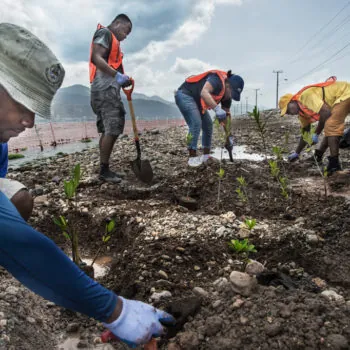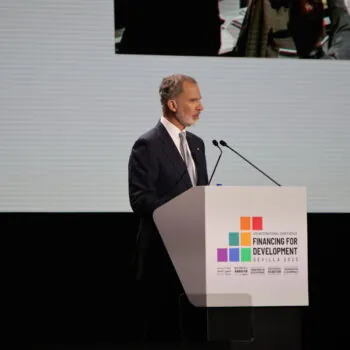Increasing the pace and scale of the energy transition in Southeast Asia presents massive opportunity for boosting competitiveness and financial flows in Southeast Asia, new E3G report finds.
- The report focusing on Indonesia, the Philippines and Vietnam argues these countries are in a critical position to leapfrog carbon-intensive industrialisation and pivot toward clean, modern energy systems.
- Countries need credible reform plan for investors to unlock financial flows.
Story
Southeast Asia is the only region in the world with a growing share of coal-fired power generation. E3G’s new report, SEA Change: Delivering a Zero Carbon Economy in Southeast Asia, demonstrates how it is in the national interest of Indonesia, the Philippines and Vietnam to quickly transition to building modern energy systems and low carbon economies. Pursuing decarbonisation will ensure greater energy independence, enhance competitiveness and access to capital as well as create clean air and future jobs.
There are signs of progress and opportunity if SEA moves fast: like Cambodia’s solar auction resulting in the cheapest price yet at USD 0.0387/kWh; and Vietnam’s feed-in-tariff adding 4.46 GW to their grid in mere months. There are also warning signs of financial jeopardy if they go too slow: like more investors including Asian financiers restricting lending to coal and Temasek passing over Saudi Aramco’s IPO citing environmental concerns. The International Monetary Fund’s announcement last week that it will integrate climate and environmental risks into its economic assessments of countries should be a big alarm bell.
The report goes on to analyse the political and institutional barriers preventing Vietnam, Indonesia and the Philippines from throwing their political weight behind building a modern energy system and low carbon economy and from sending clear-cut, long-term market signals to unlock financial flows towards the low carbon economy. The new report identifies five priority action areas for addressing the most critical barriers to making the low carbon transition in the region: 1. create a big vision and whole economy narrative, 2. focus on competitiveness and full-cost benefit analysis, 3. build confidence from the bottom up through at scale demonstration projects, 4. provide an exit strategy to high carbon actors and assets, and 5. build the institutions for long term change.
Quote
Claire Healy, Climate Diplomacy Program Director at E3G said:
“Southeast Asia faces a strategic choice. To either continue on the high carbon development pathway and become an outlier responsible for almost half of the globe’s total energy-related emissions. Or to use the energy transition as an opportunity to modernise the economy for the future net-zero world. The choice should be obvious, if not for climate reasons then because economic competitiveness depends on it.”
Nick Mabey, CEO of E3G said:
“Southeast Asia is a diverse and dynamic region with increasing economic weight, but also a growing carbon footprint. Becoming green is not an obstacle to growth, it is a requirement for it. With genuine political leadership in the region, international cooperation, public private partnerships, and a push for clean energy opportunities, SEA could become the world’s new renewable energy hub.”
Available for comment
Claire is available for commentary – please contact her directly.
ENDS
Notes to Editors
A link to the report is available here.
This report was completed under the project “Shifting Financial Flows to invest in Low-Carbon Development in Southeast Asia” (SHIFT SEA). The project is funded by the German International Climate Initiative (IKI) and is led by a consortium including Sustainable Energy for All (SEforALL), Climate Action Network (CAN), Mission 2020 (M2020) and supported by the expertise of three national partners: Yayasan Mitra Hijau (YMH) in Indonesia, the Institute for Climate and Sustainable Cities (ICSC) in the Philippines and GreenID in Vietnam. For more information on the project visit please visit www.seforall.org/shift.


